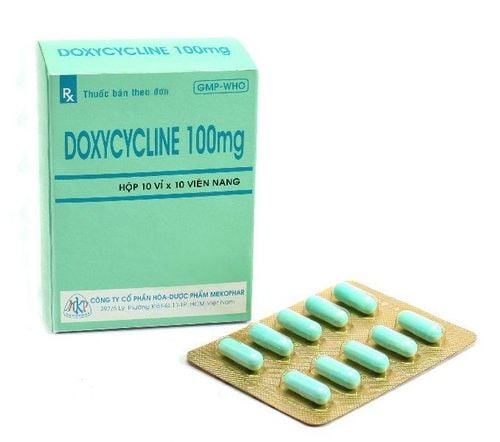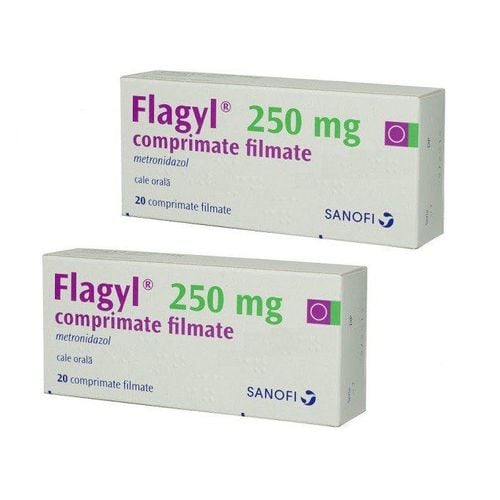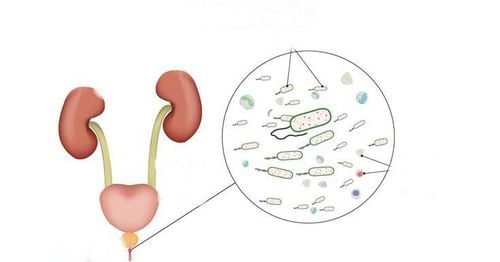This is an automatically translated article.
The article was professionally consulted with Specialist Doctor I Nguyen Hung - Doctor of Endocrinology - Department of Medical Examination & Internal Medicine - Vinmec Danang International General Hospital.Urethritis is a urinary tract infection, common in men and should be detected and treated early to minimize dangerous complications. When treating urethritis with drugs, it is common to encounter drug-resistant urethritis, so it is necessary to master some principles when using antibiotics to treat urethritis.
1. Urethritis in men
Urethritis in men is an infection of the urogenital tract in men, caused by certain bacteria such as Chlamydia Trachomatis, gonorrhea... Characteristic signs of urethritis such as painful urination , frequent urination, low salary each time, fever, chills, chills... At this time, the patient was examined and performed a number of tests such as analysis of 10 urine parameters, urine culture. Bacterial enumeration and antibiogram. Some more severe patients may have additional blood culture techniques.Some dangerous complications that urethritis leaves on patients are upstream infections causing pyelonephritis, cystitis, septic shock... Determining the cause of urethritis in men is very important. It is important because each type of bacteria has different indications for use.
2. Antibiotics for urethritis
Drug treatment of urethritis is a very commonly used method to treat urethritis in men. Because this is an infectious disease, choosing an antibiotic to treat urethritis is extremely important and should be paid attention to so as not to adversely affect the patient's health.First of all, antibiotics for urethritis and the duration of use of these antibiotics in patients must depend on a number of factors such as:
Antibiotic activity spectrum against identified bacteria or microorganisms most infectious. Simple or complex urethritis. The harms, effectiveness and cost of drugs for users Is the patient's drug-resistant urethritis present or not, to what extent...

The concentration of antibiotics for urethritis in the urine plays a more important role than the concentration of antibiotics in the serum, so urethritis can be cured when the drug is in sufficient concentration in the urine. For severe urethritis, accompanied by blood infection, it is necessary to pay attention to the concentration of antibiotics in the blood and at this time, antibiotics will be introduced into the body by intravenous infusion. Patients with urethritis with signs of high fever, chills, and increased white blood cell count should initially be given intravenous antibiotics to treat urethritis. Time to cure urethritis with antibiotics is 10 days - 2 weeks. After using the drug orally, antibiotics can be given intravenously when the patient with simple urethritis has been fever free for a few days, usually fluoroquinolones. Some patients are not poisoned but have weakened immune systems, vomiting, should be treated with oral therapy first. If the test still has bacteria in the urine after 24-48 hours after taking the drug, the patient may have had drug-resistant urethritis, which needs to be changed to another antibiotic for the best treatment effect. Some broad-spectrum antibiotics such as 3rd generation Cephalosporins, Aztreonam, Aminopenicillins are used for community-acquired urethritis. If antibiotics are given, but the fever is still present or there are signs of toxicity, look for other medical causes such as an abscess. If the patient has a history of drug-resistant urethritis, a broad-spectrum antibiotic should be started first, and then, based on bacteriological evidence and the patient's state of resistant urethritis, to adjust another antibiotic. Note some cases of multi-bacterial infections When using antibiotics to treat urethritis, there is no scientific evidence that bactericidal antibiotics are more effective in treatment than bacteriostatic antibiotics. Multiple antibiotics should not be combined non-selectively. Urine pH has a great influence on antibiotics for urethritis, so alkalinizing the urine will improve the activity of some antibiotic groups such as Aminoglycosides, Benzylpenicillin, Erythromycin, and if the urine is acidic, the group of antibiotics including Tetracyclines, Nitrofurantoin, Methenamine Mandelate will also increase effectiveness.

In case the bacteria causing disease in some localities are flagellates, also known as Trichomonas, the treatment regimen should include Metronidazole or Tinidazole drugs. In some cases of urethritis with clinical manifestations but not showing positive results for bacteria, using the antibiotic Azithromycin can still reduce the symptoms of the disease, even in cases of urethritis caused by syphilitic bacteria. in patients infected with HIV/AIDS. When using antibiotics for urethritis with a confirmed cause as gonococcal, a regimen consisting of azithromycin or doxycycline, oral Cefixime or intramuscular ceftriaxone can be used. Because of the increasing resistance of urethritis, fluoroquinolone antibiotics are not indicated in the treatment regimens for urethritis. Finally, after taking antibiotics for about 3 months, the patient needs to be re-examined according to the doctor's appointment, using a regimen consisting of Azithromycin/5 days or Doxycycline/7 days and a single dose of Metronidazol.

Please dial HOTLINE for more information or register for an appointment HERE. Download MyVinmec app to make appointments faster and to manage your bookings easily.
Recommended video:Routine health check at Vinmec: Protect yourself before it's too late!














